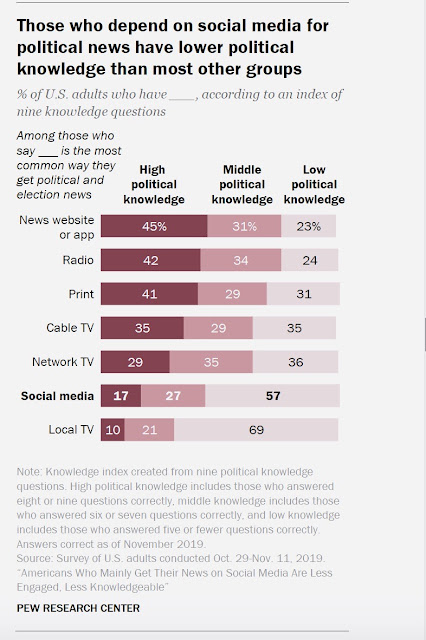 |
Unlike 99% of commenters who invariably cheered the CEO for his message (right on, brotha), I called out his post as hypocritical and untrue. Not only was he trying to justify his determination to disobey the authorities with the "constitutional rights" BS, but from what I had seen at my particular gym, the claim that meticulous safety measures were being taken was frankly a joke. The most important measure, masks, were non-existent.
As you can imagine, the retribution directed at me for my treacherous post was swift, and I was promptly denounced by the 'grammars. The CEO, rather than inquiring into my concerns, responded, "No one is forcing you to go the gym. It's completely voluntary and you're free to not come if you so wish."
Which was completely missing the point. My objections weren't all about me; they were about everyone. That concept seemed to be lost on my fellow Instagrammers. Many of them repeated the phrase, "No one is forcing you to go the gym."
A Different Era
The 'grammers just didn't get my point. The reason they didn't is a reflection of our times. This last 9/11 anniversary, it was remarked how in the aftermath of the 2001 tragedy, Americans (and in fact the world) came together. There was a feeling of solidarity in sadness and shock. Almost 20 years later in the grip of a pandemic, it seems like we are a completely different nation. Think about it: in 2001, Facebook wasn't even around and wouldn't be launched for another three years, Twitter another five.
Back then, we had a common enemy. We also have a common enemy in SARS-CoV-2, but instead, Americans are making enemies out of each other. The atmosphere of 2020 is far removed from that of 2001. There's no unity--only division. Why is this happening?
First, the 2020 enemy, a virus, is not itself visible to us in everyday life. In 2001, everyone could see the planes flying into the Twin Towers; we could see the evil before us. Not so much the coronavirus. What the hell is a virus, anyway? Most people don't have the foggiest notion, and the rest are fuzzy on the details. Is it even a living organism? When it first appeared, there was confusion about origins, spread, masks/no masks, viral survivability on surfaces, etc. Some of that confusion still hasn't been cleared up.
Second, in the Covid-19 era, we had no leader to rally us. In September 2001, George W Bush and indeed Mayor Giuliani brought us together with words of courage. It was a way to set our minds in a secure place of resoluteness. With Covid-19, we had nothing like that--no Churchillian/Rooseveltian admonishment that a tough road lay ahead but in the end we would triumph. Instead, we became an Orwellian nation.
Third, and I would argue this is one of the major causative factors, we now have social media. The irony of social media is that it isn't clear how social it really is. I feel it's like an open-air market where there are so many things to buy that you can't focus on one. Eventually, when you do make a purchase, you interact with the vendor to complete the transaction, but it isn't really a social exchange. It's similar to "liking," commenting on a comment on Instagram/Facebook, or retweeting on Twitter. None of it is really social. It's a series of transactions designed to make a sale. What are they selling? The items shown in the suggestive ads? No. You are being sold.
Ignorant Me
Take a look at this image:
 |
| Conversation, anyone? |
And now this one:
 |
| I feel pretty |
Indeed in a hilarious The Daily Show segment, a woman (at 1:08 in) declares that her source of information is Facebook or Twitter.
About 23% of U.S. adults who rely most on social media for political news say they are following news about the COVID-19 pandemic very closely, according to a Pew Research Center June survey. Higher shares in every other group say they are tracking the outbreak very closely: cable TV (50%), national network TV (50%), news websites and apps (44%), or local TV (32%).
In a 1983 Washington Post column, Patrick Moynihan said (based on an earlier quote by James Schlesinger), "Everyone is entitled to his own opinion, but not his own facts." Nowadays, though, what are facts? Are they what you know or what you believe, and what's the difference?
It would be a fascinating but tragic experiment to observe how a 9/11/2001 catastrophe would play out in 2020. I suspect the result would be completely different.

















Wonderful post, Kwei!! I can tell you one small piece of good news: InNew York, the 9/11 sense of community has not worn off. This year our sense that we are all in this together is palpable everywhere we go. (I posit that our circumstances , and my experience on the fateful day show that sense was already firmly in place before the first plane hit a tower).). We have had exactly the leadership you describe. These are the reasons Covid-19 is pretty much under control here. Our fear is that people from other places will come here and, lacking our sense of community, spread it around again.
ReplyDeleteYes, Annamaria, and that's a good point. New Yorkers showed the rest of the country how to do it!
DeleteExcellent post, Kwei. Just why the US is making such a mess of handling COVID is a difficult question, but I think your interpretation makes sense. Trump alone was not enough. I'm just hoping the election isn't as unpredictable...
ReplyDeleteI join in the chorus of praise for your well-reasoned, thoughtful explanation of the madness of our times, Kwei. As for a solution....
ReplyDeleteExcellent! And your point about customers as "users" is chilling.
ReplyDelete